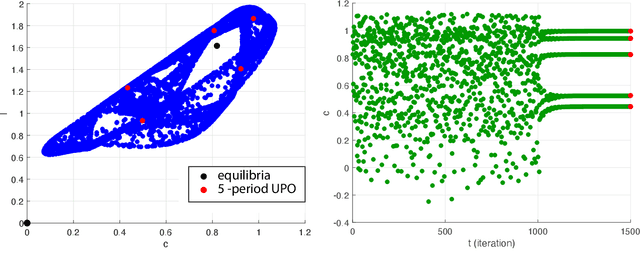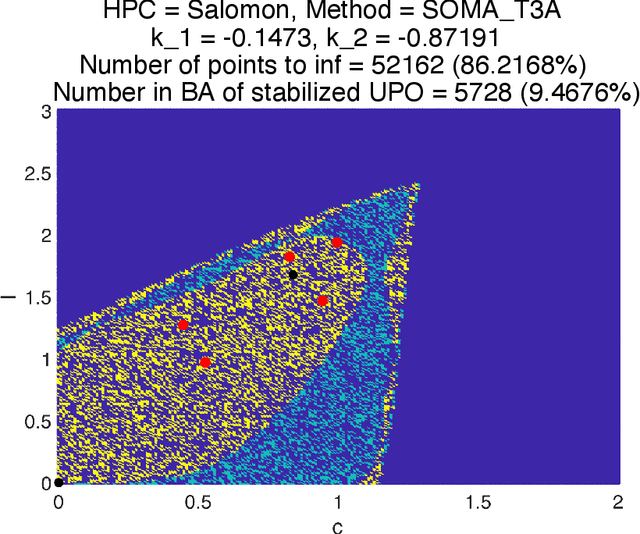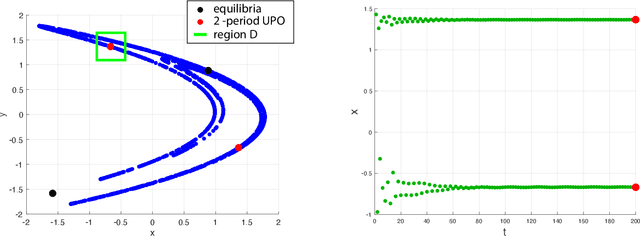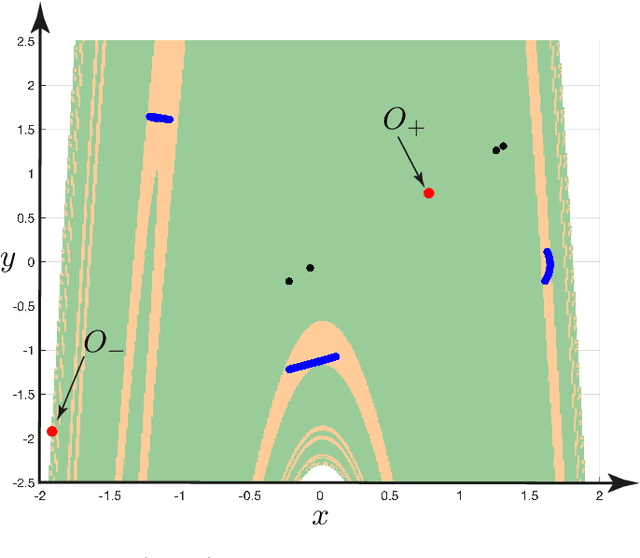Forecasting and stabilizing chaotic regimes in two macroeconomic models via artificial intelligence technologies and control methods
Paper and Code
Feb 20, 2023



One of the key tasks in the economy is forecasting the economic agents' expectations of the future values of economic variables using mathematical models. The behavior of mathematical models can be irregular, including chaotic, which reduces their predictive power. In this paper, we study the regimes of behavior of two economic models and identify irregular dynamics in them. Using these models as an example, we demonstrate the effectiveness of evolutionary algorithms and the continuous deep Q-learning method in combination with Pyragas control method for deriving a control action that stabilizes unstable periodic trajectories and suppresses chaotic dynamics. We compare qualitative and quantitative characteristics of the model's dynamics before and after applying control and verify the obtained results by numerical simulation. Proposed approach can improve the reliability of forecasting and tuning of the economic mechanism to achieve maximum decision-making efficiency.
 Add to Chrome
Add to Chrome Add to Firefox
Add to Firefox Add to Edge
Add to Edge